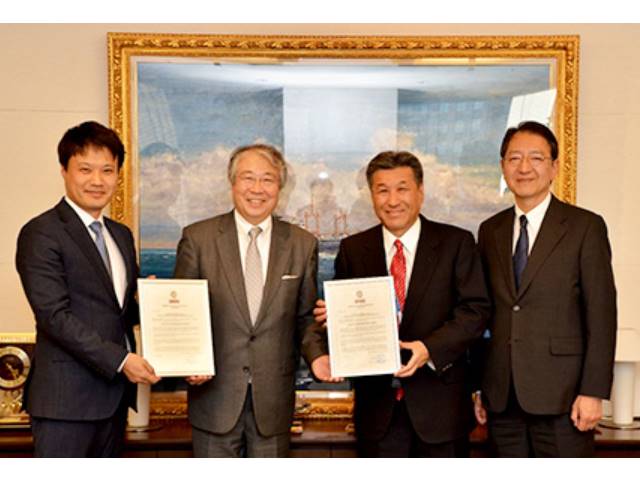Bureau Veritas Marine & Offshore (BV), a world leader in testing, inspection and certification (TIC) services has issued the first approval in principle for a new cold energy ‘Cryo-Powered’ regas system for use in FSRU applications.
Mitsui O.S.K. Lines, Ltd. (“MOL”; head office: Tokyo, Japan; President & CEO: Junichiro Ikeda) and Daewoo Shipbuilding & Marine Engineering Co., Ltd (“DSME”; head office: Geoje, Korea; President & CEO: Sung Geun Lee) have jointly obtained “Approval in Principle (AIP)” from Bureau Veritas for the design of a new cold energy use regasification system, “Cryo-Powered Regas”, for Floating Storage and Regasification Unit (FSRU,*1).
MOL and DSME have been jointly developing this “Cryo-Powered Regas” system to enhance fuel consumption efficiency and reduce CO2 emission of FSRU(*2).
For the “Cryo-Powered Regas” system, a cold power generation technology based on Organic Rankine Cycle (*3) will be implemented in the FSRU regasification process.
The “Cryo-Powered Regas” system, which MOL and DSME obtained the AIP this time, will enable to utilize the LNG cold energy as power generation by adopting the Organic Rankine Cycle in the FSRU regasification process. The system is targeted to reduce the fuel gas consumption and CO2 emission for FSRU approximately 50% by recovering approx. 70% of the power consumption in the regasification process at maximum rated regas flow rate(*4).
Organic Rankine Cycle system itself is a proven technology that has been utilized in multiple onshore LNG terminals for around 40 years. This will be however the world’s first case to adopt the system for FSRU.









































